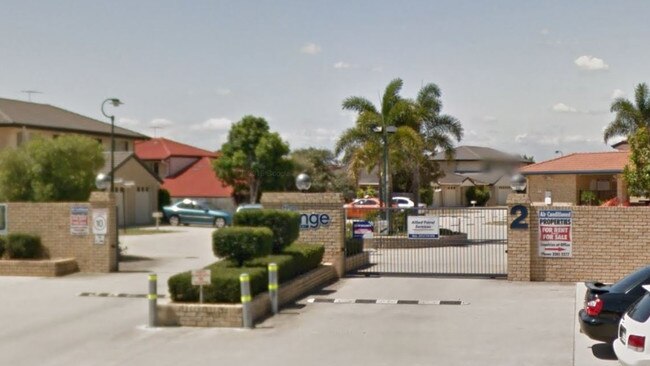Apartment owners want to get back control of expensive and decades long management rights
Apartment owners are being locked into expensive, decades long, management contracts without consent, with body corporates now spending millions in a fight to stop it ‘bleeding us absolutely dry’.
QLD Business
Don't miss out on the headlines from QLD Business. Followed categories will be added to My News.
DISGRUNTLED apartment owners are being locked into expensive, decades long, management contracts without consent and an industry lobby group is demanding the government stops it.
Three body corporates have collectively spent more than a million dollars in legal bills unsuccessfully trying to terminate management rights agreements over the past two years.
The hardest hit was The Grange at Brendale, 25km north of Brisbane, where 302 lot owners had to cobble together more than $700,000, including $307,000 in costs, for their failed action to terminate management rights.

According to Queensland Civil Administrative Tribunal (QCAT) documents, The Grange’s chairman wrote to owners saying the agreement was “bleeding us absolutely dry” and there was the potential to save thousands if the agreement was terminated.
Other notable cases that have gone through the (QCAT) involved three Gold Coast complexes, Pivotal Point Tower, The Sands and The Rocks Resort.
The tribunal has handed down more than a dozen decisions this year involving body corporates and the Unit Owner’s Association of Queensland (UAOQ) said history shows management rights are rarely terminated.

UAOQ executive officer Jana Koutova said management contracts, are sold by the developers and locked-in for up to 25 years, had created a toxic environment.
She said they had lobbied the government on a number of occasions to end long-term contracts and to allow body corporates to put management rights up for tender.
“Owners need caretakers, and good caretakers on short-term contracts who will be able to win renewal of the scheme’s business based on their performance,” Ms Koutova said.
She said many issues can be traced to body corporates not being involved in the initial negotiations or framing of contracts that are sold by developers that can last decades and contain locked-in yearly increases.
“Body corporates are getting stuck in decades long contracts, which have clauses where the contract remuneration only goes up each year (by CPI or set percentage) and can never go down,” she said
“The duties are vague and open to interpretation and the termination of the contract is virtually impossible.”
Ms Koutova said the UAOQ, the leading unit’s association in Queensland, had previously made calls to the state government to address the imbalance.

Griffith University’s associate professor Sacha Reid said developers can use the sale of management rights as a source of income.
“They can make a development stack up financially at feasibility stage, so it’s another income source apart from selling all the apartments and for large scale developments it could be up to $1.2 million,” Dr Reid said.
There was also the temptation for developers to set low body corporate fees from the outset to make them more attractive for prospective buyers, the strata title specialist said.
“It can mean that after a year, or year and a half, someone has to come in and do a new budget and raise the fees and that effects all the owners,” she said.
Under statutory law, body corporates of new complexes have a three years to trigger a statutory review of a caretaker’s duties and remuneration.
However, caretakers have the same rights and only one review can be triggered, but many owners and body corporates were unaware of their rights, Ms Koutova said.
“New owners and the new committee are simply not usually up to speed,” she said.
Since the Brisbane City Council’s Urban Renewal Plan, which started in earnest in 2014, the number of body corporates (community title schemes) within Brisbane has risen from 11,049 to 12,745.
During the same period, it has leapt from 43,242 to 49,319 across Queensland.

Lawyer John Mahoney, a founding partner of Mahoneys which successfully represented the management rights holders of both Pivotal Point Tower and The Grange, said a body corporate needs to consider its options carefully.
He said even if a body corporate gets to the point of being able to terminate because of a manager’s default, it will not be able to actually follow through on it as typically a bank held the management rights as security.
“Most people recognise the futility of spending tens, or hundreds, of thousands of dollars on legal fees because even if the body corporate can lawfully terminate the agreements, they cannot proceed with termination without giving the manager’s financier the opportunity to step in and rescue their security,” he said.
He said it was also incumbent on management rights holders to be aware of their duties and what would be reasonably expected by body corporates for the remuneration they receive.
“There have been a large number of people who have bought management rights without truly understanding what they are buying and that has led to disputation with body corporates,” Mr Mahoney said.

Hynes Legal lawyer Frank Higginson said the lesson to be learned from The Grange decision was that all unit owners need to take body corporate seriously.
Hynes Legal has released a series of light-reading publications to assist unit owners and body corporates to how best deal with disputes involving management rights.
“You need to do your own due diligence and get involved,” Mr Hynes said.
“One of the comments in the Grange costs decision was that a lot of the owners said they weren’t aware what was going on, but they would have, had they got involved.
“I’ve seen both sides of the fence and there are managers and committee members who can both be at fault.”
Attorney-General Yvette D’Ath said the government’s body corporate priorities are focused on addressing matters raised in the 2016 QUT Commercial and Property Research Centre review.
“This includes lot entitlements, the making and enforcement of by-laws, debt recovery, termination of community title schemes, as well as a range of procedural and administrative issues,” Ms D’Ath said.


